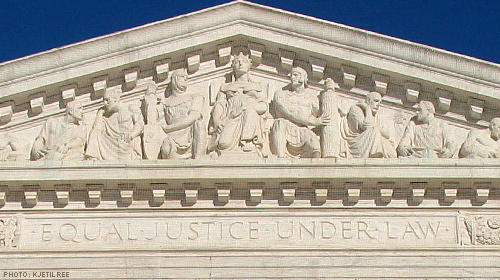
The start of a new year always presents an opportunity to think back on the successes and failures of the past year and to look forward to the future with a sense of hope and optimism. Before the countdown begins to 2014, let’s take a moment to reflect on the progress we’ve made towards abolition of the death penalty in 2013. We’ve got a lot to celebrate.
10… As we’ve seen in recent years, the decline in new death sentences and executions continued this year. The number of executions in 2013 declined by almost 10% from those in 2012, from 43 to 39. It was only the second time in 19 years that the number of executions dropped below 40.
9… Only nine states carried out executions in 2013, and the great majority of them took place in only two states: Florida and Texas.
8… While Texas remained a leader in executions among death penalty states, . Dallas County, unfortunately, has emerged as the state’s new leader in meting out the death penalty, responsible for more than 20% of all new death sentences since 2008. And the sentences imposed are still tainted by racial discrimination. Eight of the 11 death sentences out of Dallas County were imposed against Black men, and two against Hispanics. All three men sentenced to death in the county this year were Black.
7… A shortage of drugs available for lethal injection continued to hold up executions this year. California, Maryland, and North Carolina have not had an execution in over seven years due to problems surrounding their lethal injection protocols.
6… Maryland became the sixth state in six years to abolish the death penalty, joining Connecticut, Illinois, New Jersey, New Mexico, and New York.
5… Thirty states, the federal government, the military, and the District of Columbia have not carried out any executions in the last five years.
4… As more and more people recognize that our capital punishment system is fraught with error and administered unfairly, an annual Gallup poll showed that public support for the death penalty is at an all-time low. Only 60% of Americans favor capital punishment – the lowest number in four decades, and 40% of the public do not believe the death penalty is administered fairly. A majority of Boston residents for Dzhokhar Tsarnaev, if he were convicted in the Boston marathon bombing.
3… The Alabama Board of Pardons and Paroles three of the nine Scottsboro Boys, the only ones who had not already been pardoned or had the charges against them dropped. The Scottsboro Boys, a group of young Black men, had been wrongly convicted and all except for the youngest been sentenced to death for the rape of two white women by all-white juries more than 80 years ago in the state. Their cases resulted in two landmark civil rights decisions by the Supreme Court: one requiring the effective assistance of counsel in capital cases and one prohibiting the exclusion of Blacks from jury service. While the legacy of their case still hangs over the state, their pardon was a small step in acknowledging this gross racial injustice.
2… A mere 2% of the counties across the country are responsible for the majority of death sentences in the modern era of capital punishment, according to a . The findings highlighted yet again the arbitrariness of our death penalty system.
1… One more person was added to the list of people exonerated from death row, which has now grown to 143. In October, the prosecution dismissed all charges against , an innocent man who spent 30 years on Missouri’s death row.
0… The once execution-heavy states of Virginia, Louisiana, South Carolina, and Tennessee had zero new death sentences this year.
It’s clear the clock is ticking on the death penalty in the United States, though not fast enough. Across the country, more than three thousand people still remain on death row and hundreds more face the death penalty. In 2012, North Carolina repealed the landmark Racial Justice Act, and Florida passed the Timely Justice Act, in an attempt to speed up executions those states. With these challenges ahead, our New Year’s resolution is clear: we’ll continue to fight for abolition, through litigation and advocacy, until we can count down to the end of capital punishment for good.
Learn more about abolishing the death penalty and other civil liberties issues: Sign up for breaking news alerts, , and .


